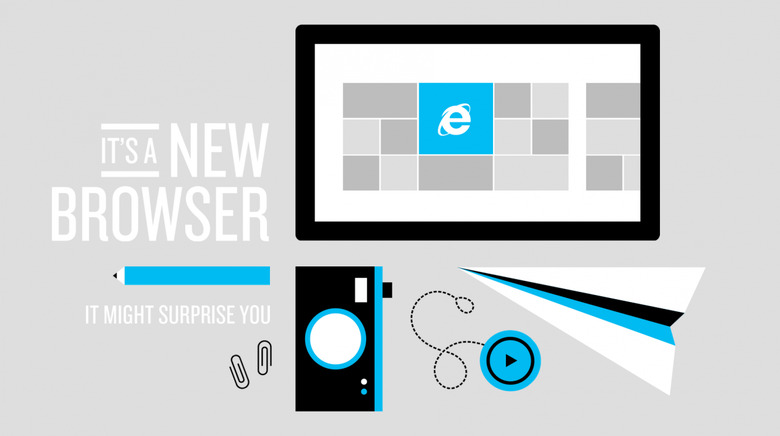Internet Explorer May Need To Die
Over the past decade, the decline in popularity of Internet Explorer took place in a big way because of the rise of competition. The last big release of Internet Explorer was with Internet Explorer 11 for Windows 7. Internet Explorer 6 is dead, at long last, but the ill effects of this extremely buggy browser are still in full effect today. Is it time for Microsoft to ditch the brand and move on? A tip earlier today suggested that Microsoft's new browser brand may be called Spartan – another Halo brand like Cortana for a full Halo family.
Word today is that Microsoft's new browser brand won't just be a re-naming, but a full revamp of the internet browser environment. Microsoft would be silly to abandon over a decade and a half of development in IE – so they wouldn't exactly abandon their first browser – but it's easy to see why they'd place far less focus on the world's most well-known internet browser icon.
Back in 2012 with the release of Internet Explorer 9, Microsoft put out an ad campaign called "The Browser You Loved To Hate." This campaign was all about people who spoke to their parents about Internet Explorer, telling them to un-install immediately.
Microsoft also released their ReThink campaign for Internet Explorer 11 for Windows 8, pinning and everything.

According to GVU, as of April 1996, Netscape Navigator had nearly 90% of the market for internet browsers. By October of 1998, Internet Explorer took 32.2% of the market away from Netscape, kicking it down far closer to 60% (right up around 64% in fact.)
According to StatOwl.com, Internet Explorer held a 74.53% share of the web browser market. By November of 2012, according to that same group, Internet Explorer's share had dropped to 43.38% while Firefox rolled with 19.42% and Google's Chrome had 24.91% of the market.
According to global desktop stats from StatCounter, as of August of 2014, Internet Explorer had 20.31% of the market while Google's Chrome had 46.26% of the market and Firefox was far closer to Safari with 17.5% and 10.81% of the market respectively.
Microsoft needs more than a clever advertising campaign to sell the public on using a home-made web browser.
They need a whole new brand.
Even if the new web browser looks and acts exactly the same as Internet Explorer does now, Spartan will be a great step toward a new trust agreement between the public and Microsoft's window to the internet.
